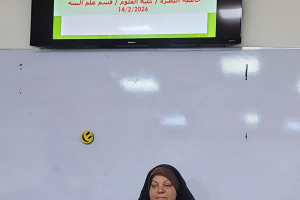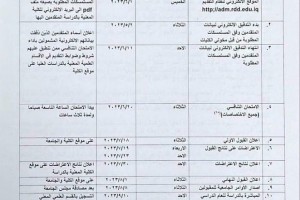
The College of Science at the University of Basrah organized a seminar on (Prevalence of Plasmid Mediated AmpC β-lactamase Family in ESBLs/Carbapenemase Klebsiella pneumonia Isolates from Clinical Samples in Al- Basrah Governorate, Iraq.) presented by graduate student Batool Tariq Safi. The study aims to isolate and identify K. pneumoniae and E. coli bacteria isolated from clinical samples using MacConkey media, differential media, and 16srDNA technology. The study also aimed to detect antibiotic resistance genes for AmpC enzymes using genetic methods. The study included searching for antibiotic resistance genes in the studied samples through genetic testing. 100 swab samples were collected from different hospitals in Basrah Governorate and from various sources such as patients undergoing hemodialysis, neurological diseases, ENT surgeries, hospitalized patients, and 50 urine samples. These samples were cultured on differential media to isolate E. coli and K. pneumoniae. Genetic testing was then performed. The results revealed that K. pneumoniae was present in 68% of the swabs and 100% of the urine samples were E. coli. The genetic screening was done to search for antibiotic resistance genes for the AmpCs enzymes (DHA, CIT, ACC, and MOX). The results of detecting the ACC and MOX resistance genes yielded negative results, meaning the genes were absent from the studied samples. Meanwhile, the DHA and CIT genes were present in 18% and 7% of K. pneumoniae, while they were present in 4% and 2% of E. coli, respectively. The study recommended isolating and identifying resistance genes in E. coli and K. pneumoniae isolated from sick children, determining their prevalence, and studying resistance genes in K. pneumoniae isolated from the environment (water, soil, wastewater, operating rooms, and surgical instruments). It also recommended improving antibiotic use policies and reducing unnecessary use of antibiotics due to high rates of resistance, and strengthening preventive measures by implementing infection control measures in hospitals to limit the spread of resistant strains, especially K. pneumoniae.







